The day of great victory is filled with flags and flowers.
April 30, 1975 is a special day in Vietnamese history, the day the war ended, the South was liberated, and the country was reunified. From that great significance, many works of literature, music, painting, architecture, etc. were born. Le Thi Ai Tung - a female poet and writer with a skillful writing style when writing about her homeland, the country, and the people of Vietnam, also has poems about this great victory day:
Flags and flowers are blooming all over the homeland
Military music and parades fill the square.
The old general with a long scar on his head
Soul as return to the battlefield.
(50 years of great victory)
In the poem “50 years of great victory”, poet Le Thi Ai Tung used an old poetic style, which is the seven-word quatrain. This poetic style helps the poet evoke memories, through the present, old images come flooding back. When the country had been unified for 50 years, the old general standing before the flags, flowers, and military music, could not forget the heroic years when the general and many comrades fought for the day of total victory.
The image of “a long scar on the head” is a valuable image. A scar left by the brutal war on the general’s head. The image of the scar on the head reminds us of “round footprints in the sand” in the famous song by musician Tran Tien. Both images show that war causes pain that cannot be erased on the human body. But the old general did not pay attention to his scar, but was remembering the battlefield. There, in the past years, the old general and his comrades carried within them the will to unify the country.
Poet Le Thi Ai Tung did not write “the old general” or “the old general” but wrote “the old general” to show the standard use of words, respect for the general, as well as to show that the general was a talented and experienced general. The word “Old” can be understood as the word “Old” in Lao Tzu, or the way to call old generals in feudal times to show the people’s respect for them, those who did not spare their lives to protect the peace of the country.
In the poem “Veteran after 50 years”, poet Le Thi Ai Tung continues to show the surprise in the meaning. Just the last two verses: “Thunder boomed loudly, rain suddenly came/ Startled looking for the gun, thinking of the old year!”, showed that even though the veteran had been through the war for 50 years, the haunting memories of war were still there.
 |
Poet Le Thi Ai Tung. |
During the war, the sound of bullets and bombs was heard continuously, so now, just hearing the sound of thunder and rain makes the veterans think they are in the war, and rush to find guns. Poet Le Thi Ai Tung has succeeded in building a humane image, thereby implicitly condemning how cruel the war was. But fortunately, the soldiers of the past were able to return when the country was unified. For the poet, the sound of bullets and bombs of the past has now been replaced by: "Flags and flowers are blooming all over the homeland/ Military music and parades fill the square".
The whole country
Continuing the poetic flow about the 50th anniversary of the Liberation of the South and National Reunification Day, poet Le Thi Ai Tung brought readers back to beloved Hue in the poem "We return to beloved Hue". Images of the Huong River, Vi Da, Ngu Binh Mountain, and Dong Ba Market appeared one after another, making readers pause and think.
The poem tells us that, because of duty, the son had to leave his mother, his beloved Hue. On the day he returned, his mother was no longer there. The son blamed himself for not being able to take care of his mother when she was old and weak. But then, surely his mother understood his feelings, and after all: “Be happy to celebrate the reunification of the country/ The red flag flies over the whole country”.
The image of “a complete country” is a poetic image, summarizing the unification of the country and the end of the war. It is also an image showing a peaceful and prosperous country. Le Thi Ai Tung’s poetry is always like that, always with a heart towards the homeland, the country, towards the cultural beauty that her ancestors have left behind. Her poetry and prose, no matter what the topic, always speak of humanity and honesty, even when describing a scene. And when writing about any character, she also shows her honesty and objectivity.
In the novel “Storms of the Past”, through the character Thuy Duong, she once wrote: “My parents were both Confucian scholars. My grandparents always taught their children and grandchildren to live morally: always be honest, not deceive anyone, not harm anyone”. And perhaps, that is also her motto in life and in literature.
Through the poems written about the 50th anniversary of the Liberation of the South and the reunification of the country, poet Le Thi Ai Tung has shown her intelligence and talent. Along with poets writing about the country and soldiers, poet Le Thi Ai Tung has contributed a flower to the garden of literature on this topic.
Poet - Writer Le Thi Ai Tung is a familiar name to poetry lovers. Many of her poems are published in newspapers: Thang Long Van Viet, Nghe Thuat Moi, Van Viet, Bao Phap Luat Viet Nam... She is old, a retired cadre, used to work at the Ministry of Foreign Affairs. Her husband is a veteran revolutionary cadre. She is a member of the Vietnam - Russia Writers Association, a member of the Vietnam - Russia Poets Association. Her poetry bears the appearance of many ancient poets. The novel "Song Gio Thoi Di Qua" is one of the few excellent books recording the scenery of Hanoi in particular, the scenery of our country in general in the early years of the 20th century. This is a humane novel, showing her sharpness and sophistication, and is also one of the very good novels about teachers.
Source: https://baophapluat.vn/nhung-nam-thang-khong-the-nao-quen-trong-tho-le-thi-ai-tung-post547017.html


![[Photo] "Lovely" moments on the 30/4 holiday](https://vphoto.vietnam.vn/thumb/1200x675/vietnam/resource/IMAGE/2025/5/1/26d5d698f36b498287397db9e2f9d16c)



![[Photo] Binh Thuan organizes many special festivals on the occasion of April 30 and May 1](https://vphoto.vietnam.vn/thumb/1200x675/vietnam/resource/IMAGE/2025/5/1/5180af1d979642468ef6a3a9755d8d51)
![[Photo] Ha Giang: Many key projects under construction during the holiday season](https://vphoto.vietnam.vn/thumb/1200x675/vietnam/resource/IMAGE/2025/5/1/8b8d87a9bd9b4d279bf5c1f71c030dec)

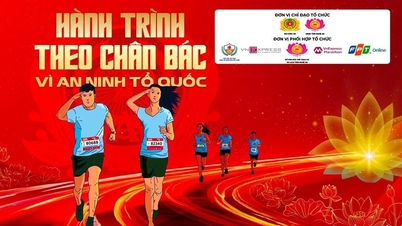
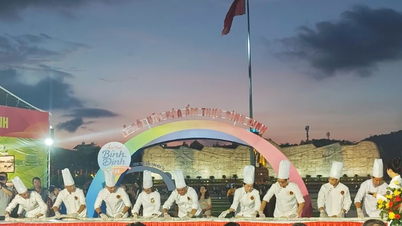

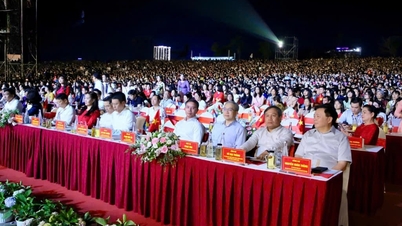
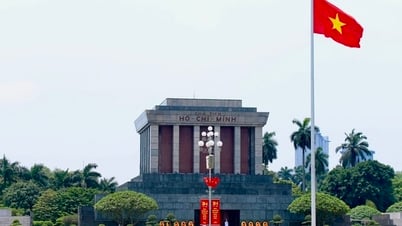






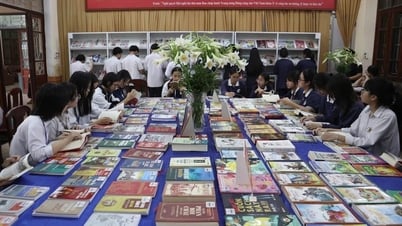
















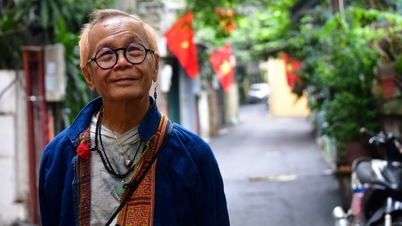






















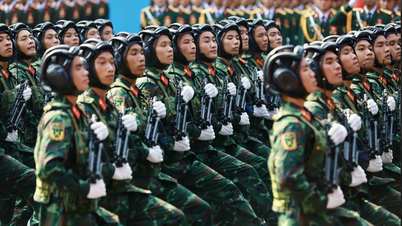


































Comment (0)